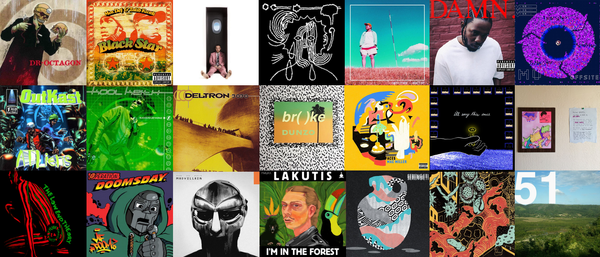Jon Brooks • • 7 min read
18 Disturbing Mental Illnesses and Depression Drawings
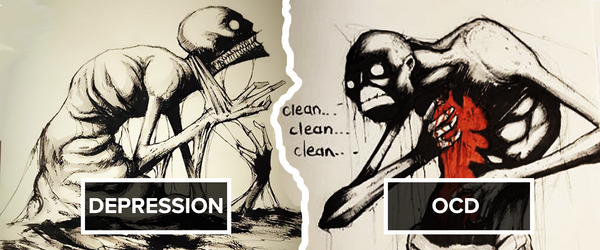
Some of these mental illness and depression drawings are quite disturbing and unsettling. Do not look at these images if you don’t think it would be good for you to do so.
Every October, artists all over the world take on the InkTober drawing challenge by doing one ink drawing a day for the entire month.
In October, 2016, Ohio-based artist Shawn Coss decided to do something different with the original prompt.
He focused exclusively on personifying mental illnesses and disorders.
These illustrations are truly “must see.”
Shawn Coss manages to capture the turmoil of those who suffer with these disorders beautifully.
It is hard for those who have not really experienced psychological distress to understand what someone who has a mental illness is going through.
That’s why these images are so potent.
If you are disturbed when you look at these illustrations, they have done their job.
More compassion and understanding needs to go to those who struggle each day with their mental health.
After experiencing these illustrations, hopefully you will see these disorders with new eyes.
1) SOCIAL ANXIETY DISORDER
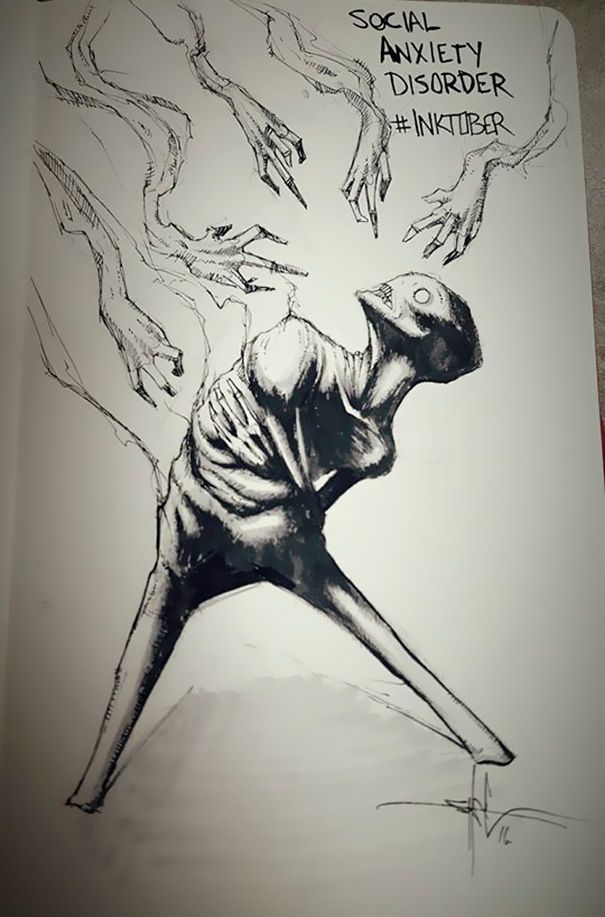
Social anxiety disorder (SAD), also known as social phobia, is an anxiety disorder characterized by a significant amount of fear in one or more social situations, causing considerable distress and impaired ability to function in at least some parts of daily life. These fears can be triggered by perceived or actual scrutiny from others.
2) MAJOR DEPRESSIVE DISORDER
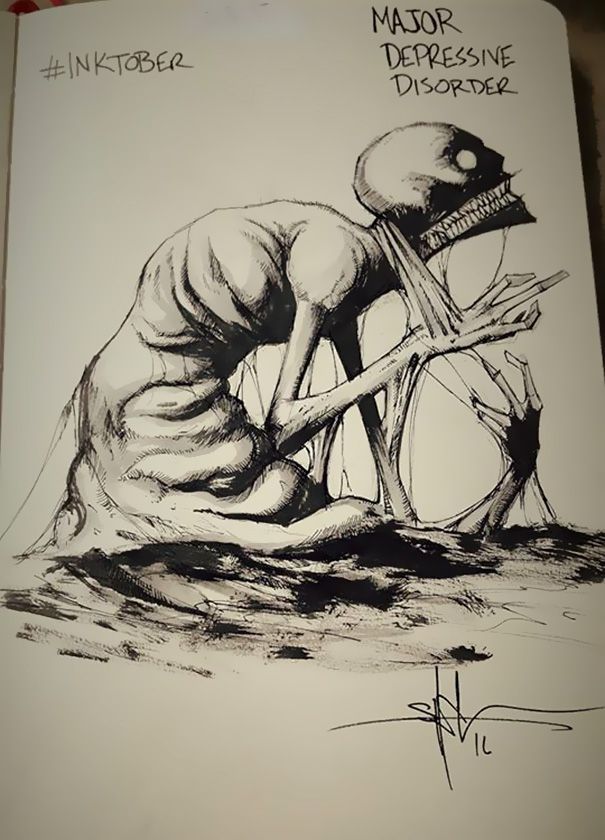
Major depressive disorder (MDD), also known simply as depression, is a mental disorder characterized by at least two weeks of low mood that is present across most situations. It is often accompanied by low self-esteem, loss of interest in normally enjoyable activities, low energy, and pain without a clear cause.
This depression drawing is one of the most potent in the list, I’m sure you’ll agree.
3) INSOMNIA
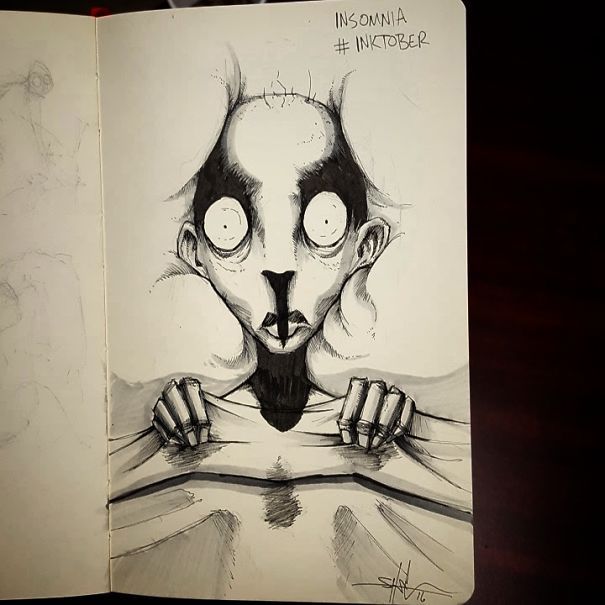
Insomnia, also known as sleeplessness, is a sleep disorder where people have trouble sleeping. They may have difficulty falling asleep, or staying asleep as long as desired.[10][8] Insomnia is typically followed by daytime sleepiness, low energy, irritability, and a depressed mood.
4) POST-TRAUMATIC STRESS DISORDER
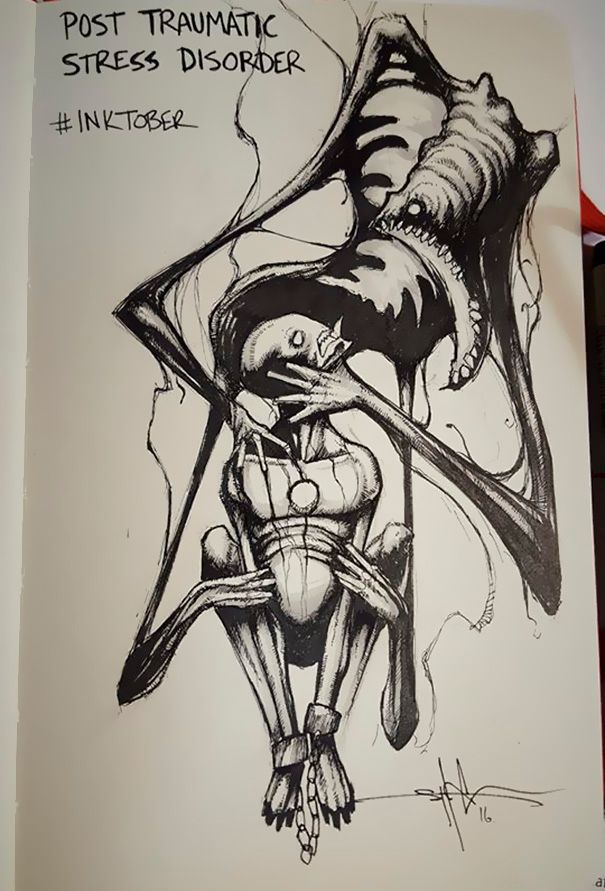
Post-traumatic stress disorder (PTSD) is a mental disorder that can develop after a person is exposed to a traumatic event, such as sexual assault, warfare, traffic collisions, or other threats on a person’s life. Symptoms may include disturbing thoughts, feelings, or dreams related to the events, mental or physical distress to trauma-related cues, attempts to avoid trauma-related cues, alterations in how a person thinks and feels, and an increase in the fight-or-flight response.
5) BIPOLAR DISORDER
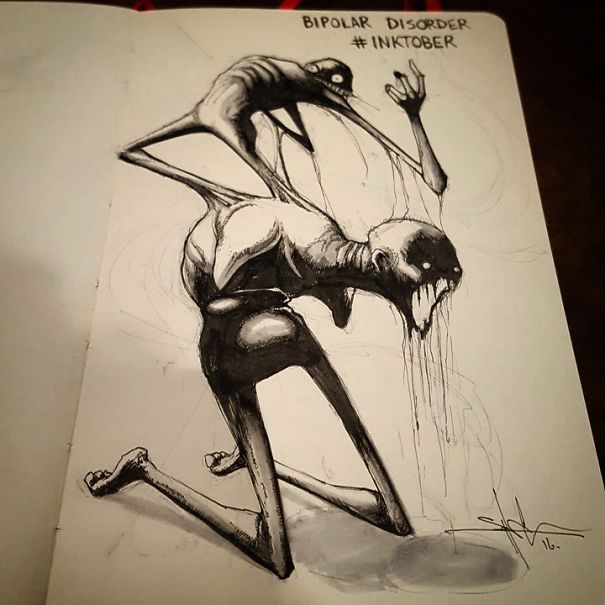
Bipolar disorder, previously known as manic depression, is a mental disorder that causes periods of depression and periods of elevated mood. The elevated mood is significant and is known as mania or hypomania, depending on its severity, or whether symptoms of psychosis are present.
6) BORDERLINE PERSONALITY DISORDER
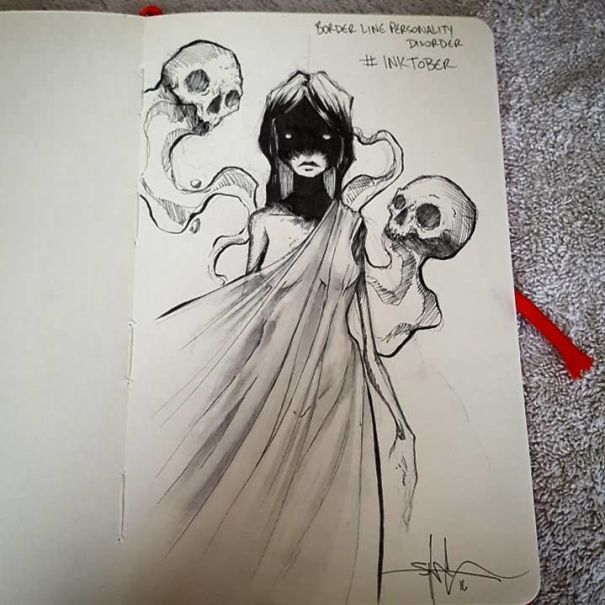
Borderline personality disorder (BPD), also known as emotionally unstable personality disorder, is a long-term pattern of abnormal behavior characterized by unstable relationships with other people, unstable sense of self, and unstable emotions. There is often an extreme fear of abandonment, frequent dangerous behavior, a feeling of emptiness, and self-harm.
7) AUTISM SPECTRUM DISORDER
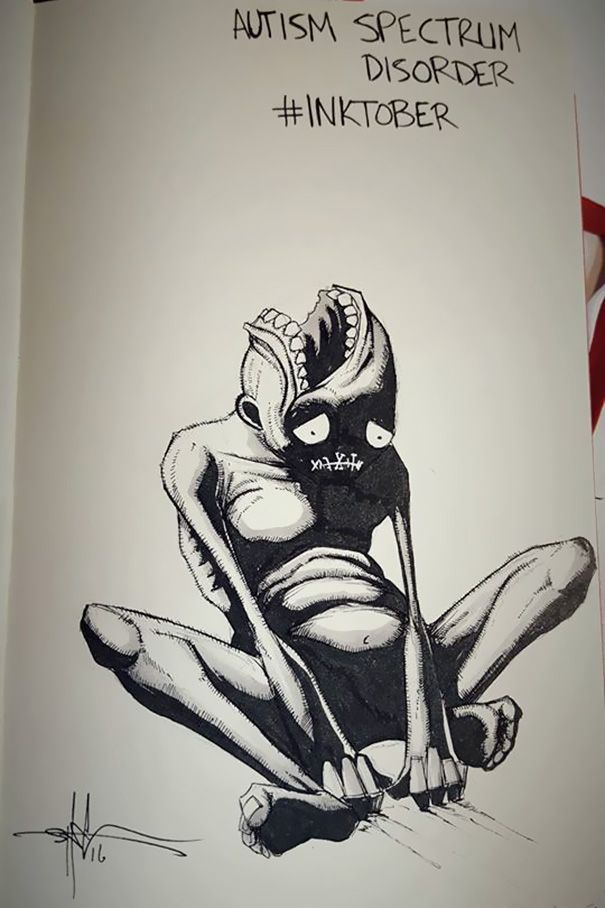
Autism is a mental condition, present from early childhood, characterized by difficulty in communicating and forming relationships with other people and in using language and abstract concepts.
8) PARANOID SCHIZOPHRENIA
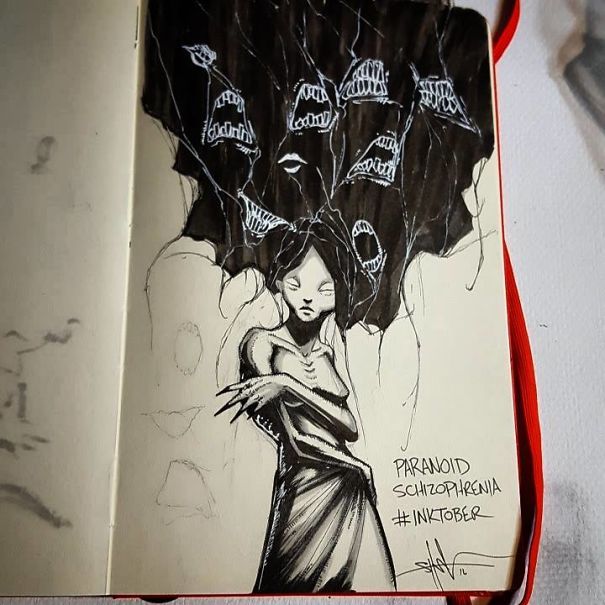
Paranoid schizophrenia manifests itself in an array of symptoms. Common symptoms for paranoid schizophrenia include auditory hallucinations (hearing voices) and paranoid delusions (believing everyone is out to cause the sufferer harm).
9) OBSESSIVE COMPULSIVE DISORDER
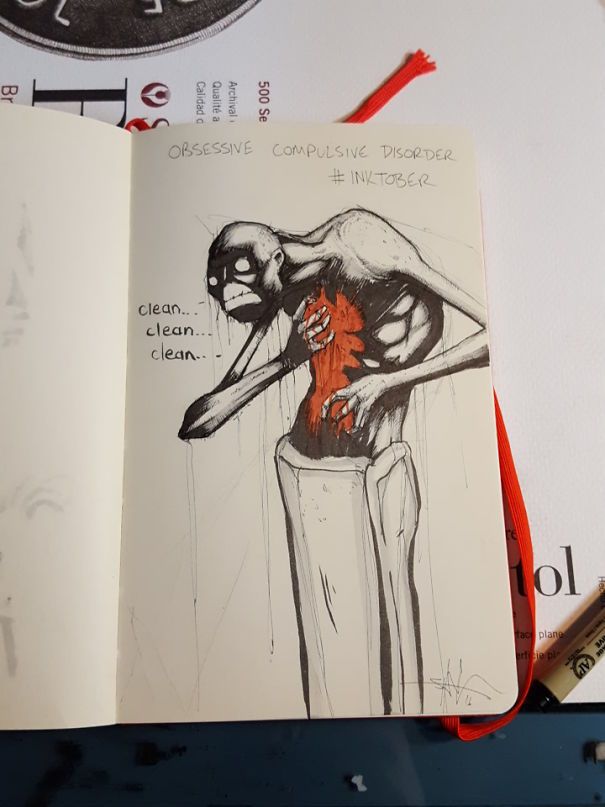
Obsessive–compulsive disorder (OCD) is a mental disorder where people feel the need to check things repeatedly, perform certain routines repeatedly (called “rituals”), or have certain thoughts repeatedly. People are unable to control either the thoughts or the activities for more than a short period of time.
10) DEPENDENT PERSONALITY DISORDER
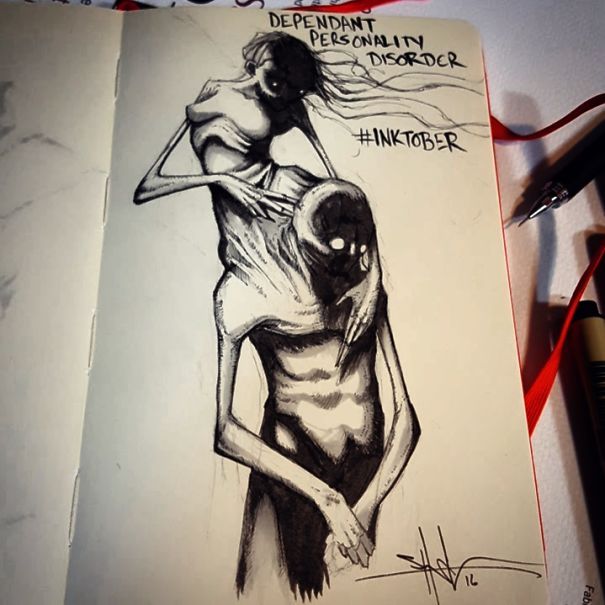
Dependent personality disorder (DPD), is a personality disorder that is characterized by a pervasive psychological dependence on other people. This personality disorder is a long-term condition in which people depend on others to meet their emotional and physical needs, with only a minority achieving normal levels of independence.
11) ANOREXIA NERVOSA
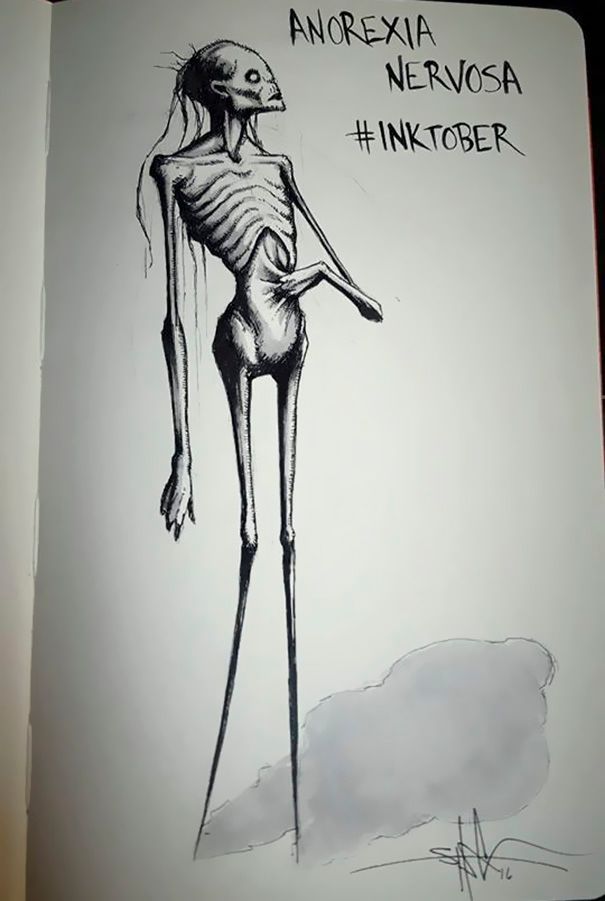
Anorexia nervosa, often referred to simply as anorexia, is an eating disorder characterized by a low weight, fear of gaining weight, a strong desire to be thin, and severe food restriction. Many people with anorexia see themselves as overweight even though they are in fact underweight.
12) DEPERSONALIZATION DISORDER
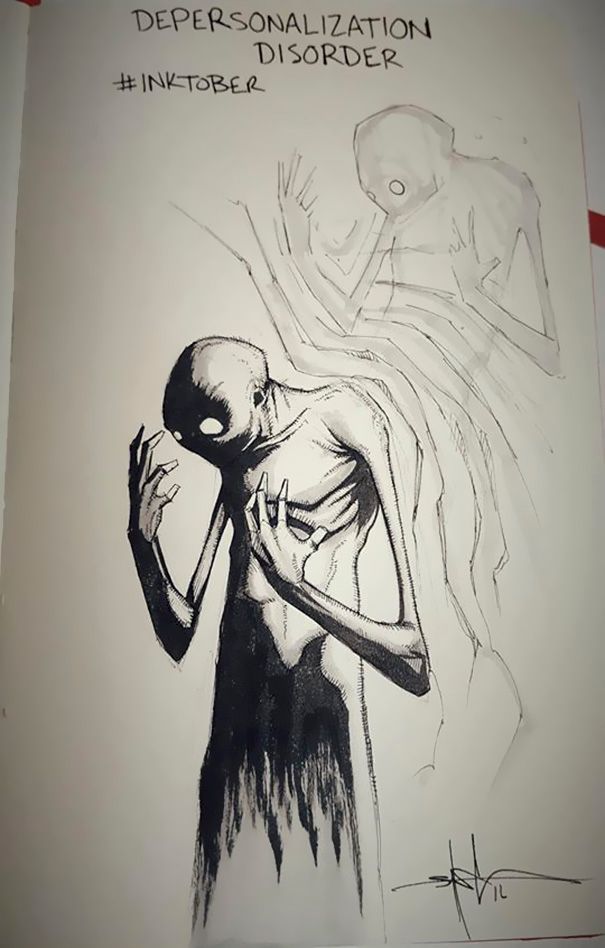
Depersonalization disorder (DPD), is described as feeling disconnected or estranged from one’s self. Individuals experiencing depersonalization may report feeling as if they are an outside observer of their own thoughts or body, and often report feeling a loss of control over their thoughts or actions.
13) AGORAPHOBIA
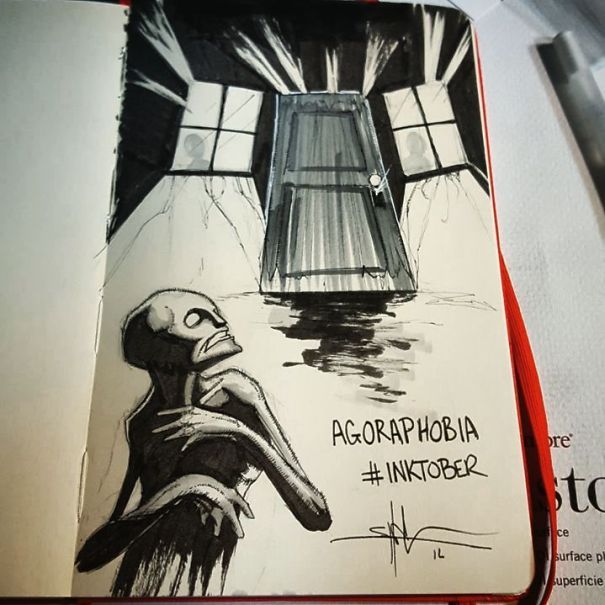
Agoraphobia is an anxiety disorder characterized by symptoms of anxiety in situations where the person perceives the environment to be unsafe with no easy way to get away. These situations can include open spaces, public transit, shopping malls, or simply being outside the home. Being in these situations may result in a panic attack. The symptoms occur nearly every time the situation is encountered and last for more than six months. Those affected will go to great lengths to avoid these situations. In severe cases people may become unable to leave their homes.
14) DISSOCIATIVE IDENTITY DISORDER
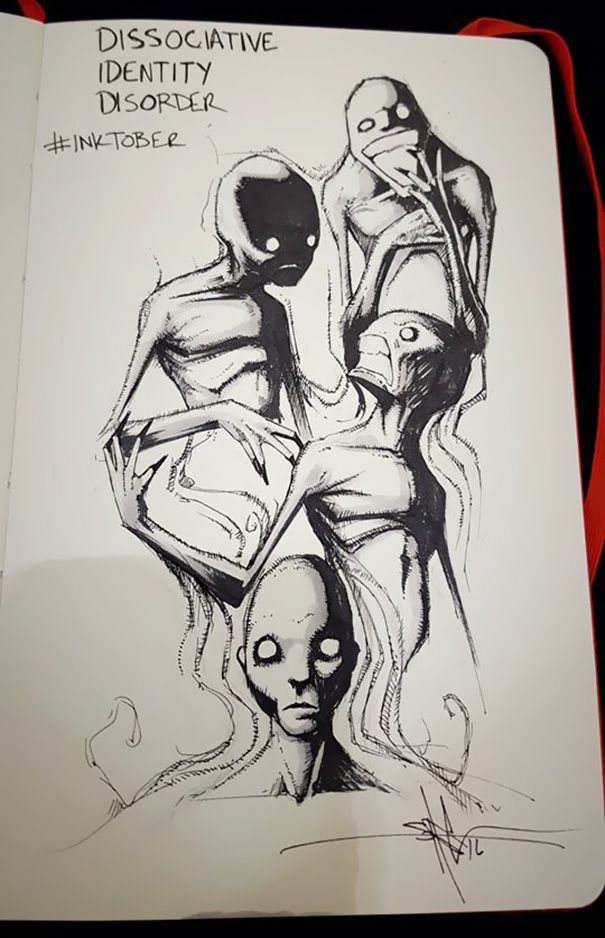
Dissociative identity disorder (DID), also known as multiple personality disorder (MPD), is a mental disorder characterized by at least two distinct and relatively enduring identities or dissociated personality states. These states alternately show in a person’s behavior, accompanied by memory impairment for important information not explained by ordinary forgetfulness.
15) CAPGRAS DELUSION
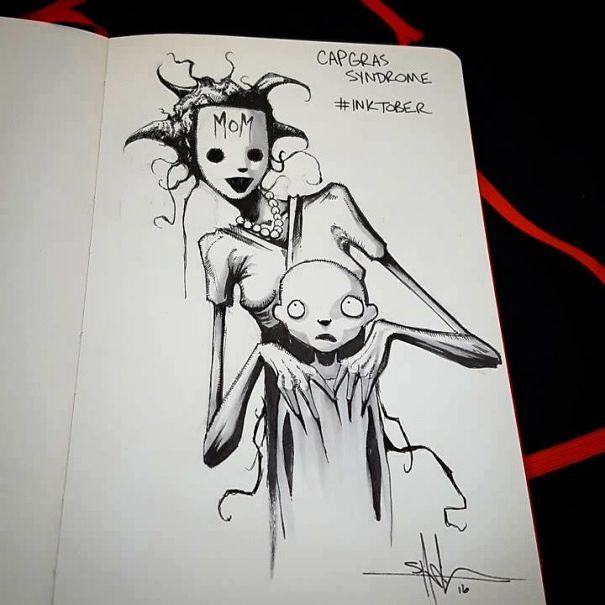
Capgras delusion is a psychiatric disorder in which a person holds a delusion that a friend, spouse, parent, or other close family member (or pet) has been replaced by an identical impostor. The Capgras delusion is classified as a delusional misidentification syndrome, a class of delusional beliefs that involves the misidentification of people, places, or objects.
16) COTARD’S DELUSION
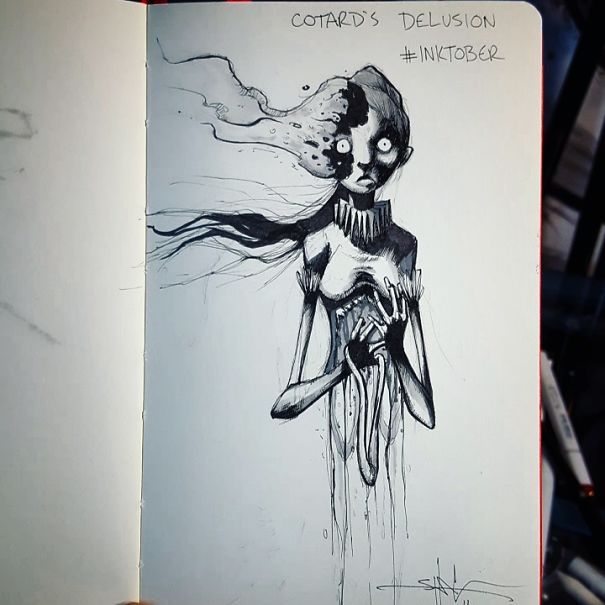
Cotard delusion is a rare mental illness in which the affected person holds the delusional belief that they are already dead, do not exist, are putrefying, or have lost their blood or internal organs. Statistical analysis of a hundred-patient cohort indicates that the denial of self-existence is a symptom present in 69% of the cases of Cotard’s delusion; yet, paradoxically, 55% of the patients present delusions of immortality.
17) DISINHIBITED SOCIAL ENGAGEMENT DISORDER
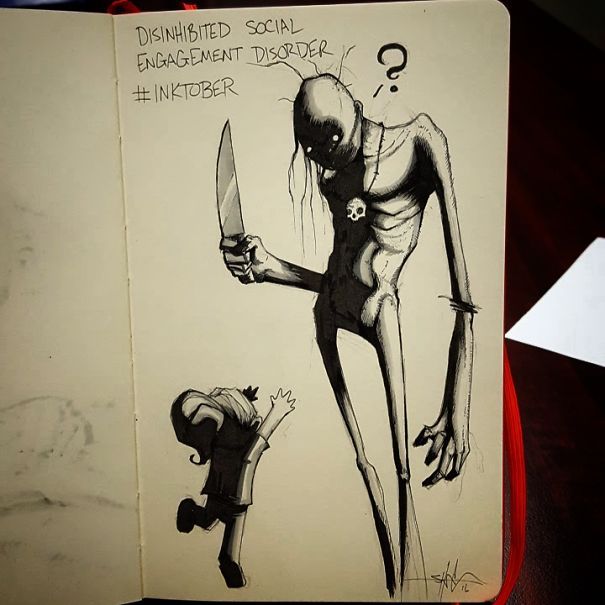
Disinhibited Social Engagement Disorder (DSED) is an attachment disorder that consists of “a pattern of behavior in which a child actively approaches and interacts with unfamiliar adults” and which “…significantly impairs young children’s abilities to relate interpersonally to adults and peers.” For example, sitting on the lap of a stranger or peer, or leaving with a stranger. DSED is exclusively a childhood disorder and is not diagnosed before the age of nine months or after the age of five. Infants and very young children are at risk if they receive inconsistent or insufficient care from a primary caregiver.
18) SCHIZOPHRENIA DISORDER
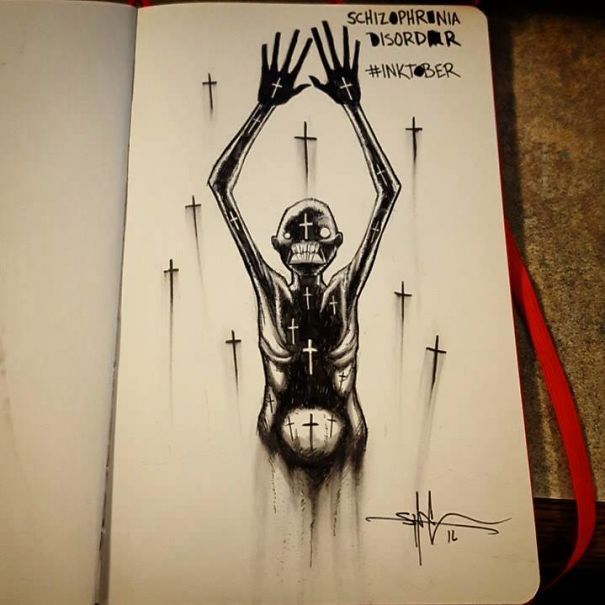
Schizophrenia (of which paranoid schizophrenia is a sub-type) is a mental disorder characterized by abnormal social behavior and failure to understand what is real. Common symptoms include false beliefs, unclear or confused thinking, hearing voices that others do not hear, reduced social engagement and emotional expression, and a lack of motivation.
I found the above mental illness and depression drawings to be incredibly beautiful and creative. Us humans are storytelling creatures and sometimes ideas land much better when we make a character out of something that is hard to explain.
In mythology you have characters for war and desire and peace, etc. And here Shawn created these mental illness and depression drawings in such a way that really helps people who don’t know what it’s like to experience mental health disorders to connect better with what someone might be experiencing.
Of course, this is just an interpretation, and many people may disagree with the ways the images were depicted. What’s important is that it’s at least an attempt to convey understanding of these mental illnesses through the use of a medium other than words.
View more of Shawn’s art here.

Jon Brooks
Jon Brooks is a Stoicism teacher and, crucially, practitioner. His Stoic meditations have accumulated thousands of listens, and he has created his own Stoic training program for modern-day Stoics.







